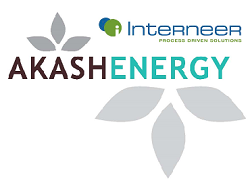The 26th American Coalition for Ethanol (ACE) Conference is less than two weeks away. The event is being held in Des Moines, Iowa August 26-28th and the conference will be offering great sessions covering issues that are important to the ethanol industry. I asked Shannon Gustafson, Director of Strategic Projects for a brief overview of some of the key issues that will be discussed.
 She said the first day of the conference general session will highlight “policy & innovation” with topics like “Opportunities for Ethanol Producers to Reduce Carbon Intensity,” “RFS Pathways to Innovation,” and a Q&A with ACE leadership. The second day of the general session will highlight “marketing & profitability” with topics like “Taking Advantage of RINS in the Marketplace,” “Automaker Perspective: Outlook for Higher Ethanol Blends and Octane,” “Current Financial Status of the Industry & Co-Product Trends and Their Impact on Profitability,” and “Trade Policy and the U.S. Ethanol Industry.” She said they will also have breakout sessions designed to help ethanol plant managers and board members with things like governance and elections. The full agenda can be found here.
She said the first day of the conference general session will highlight “policy & innovation” with topics like “Opportunities for Ethanol Producers to Reduce Carbon Intensity,” “RFS Pathways to Innovation,” and a Q&A with ACE leadership. The second day of the general session will highlight “marketing & profitability” with topics like “Taking Advantage of RINS in the Marketplace,” “Automaker Perspective: Outlook for Higher Ethanol Blends and Octane,” “Current Financial Status of the Industry & Co-Product Trends and Their Impact on Profitability,” and “Trade Policy and the U.S. Ethanol Industry.” She said they will also have breakout sessions designed to help ethanol plant managers and board members with things like governance and elections. The full agenda can be found here.
I asked Gustafson, why the ACE Conference is unique in relation to other biofuel conferences. “The ACE conference is unique in that it is an intimate gathering that provides industry members ample opportunity to meet face to face with their counterparts at other plants, ask questions directly to speakers, and dig deep into what issues are affecting the industry in the moment,” explained Gustafson.
She also noted that the ACE Conference is perfect for ethanol plant management and board members, and is also a great event for anyone that works directly or peripherally in the industry. Between the General Session and Breakout Sessions, attendees will find both high level overviews of topics as well as the opportunity to dive deeper into topics during Q&As.
But maybe one of the best aspects of the event is that plant managers and attendees will be able to go back home and put information into action. “Plant members that attend our event will go back with a firm grasp of what is happening in Washington and how it will affect their plant in the coming months,” said Gustafson. “They will also take back skills that can be put to use in board meetings to enrich relationships between board members and plant management and how to make wise staffing decisions, as well as more technical knowledge related to air enforcement and RINs.”
Registration is still open but because of the intimate venue, is limited. So register now before its too late.









